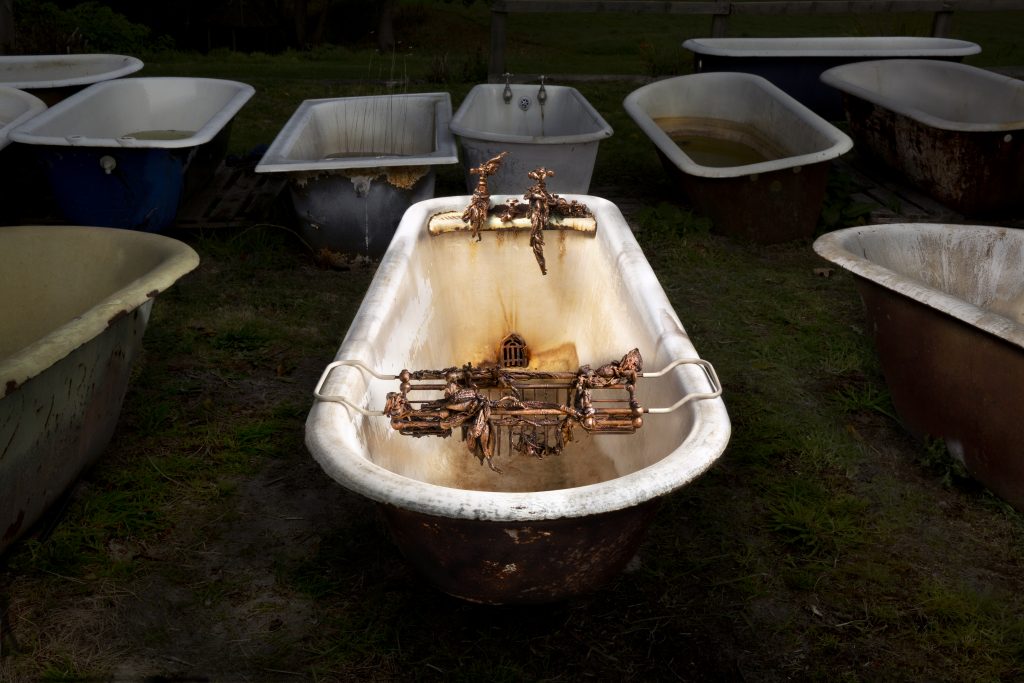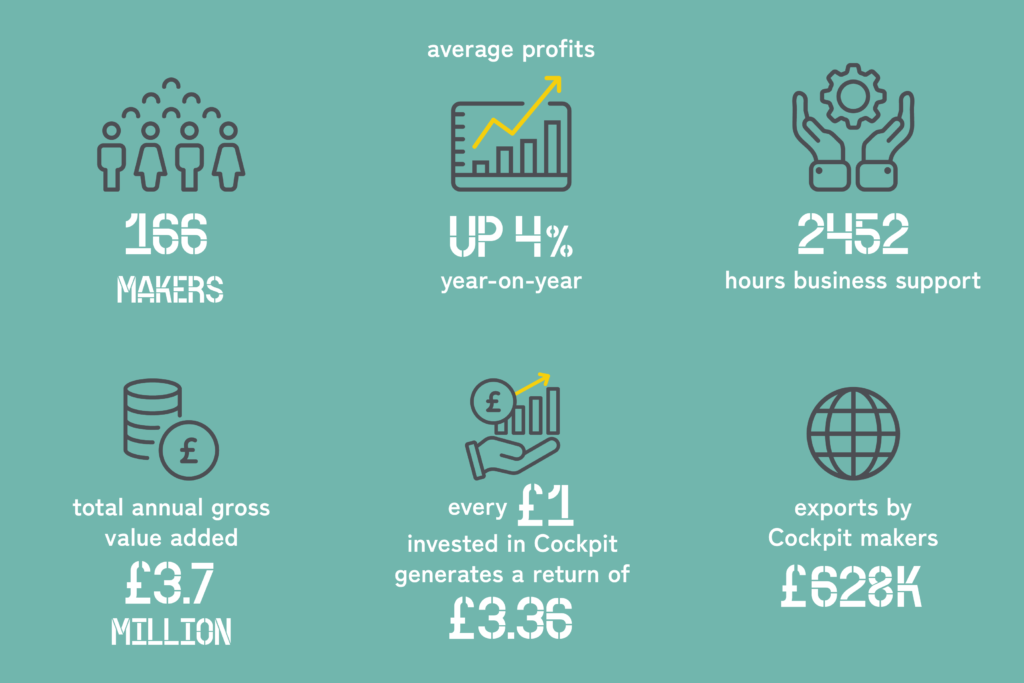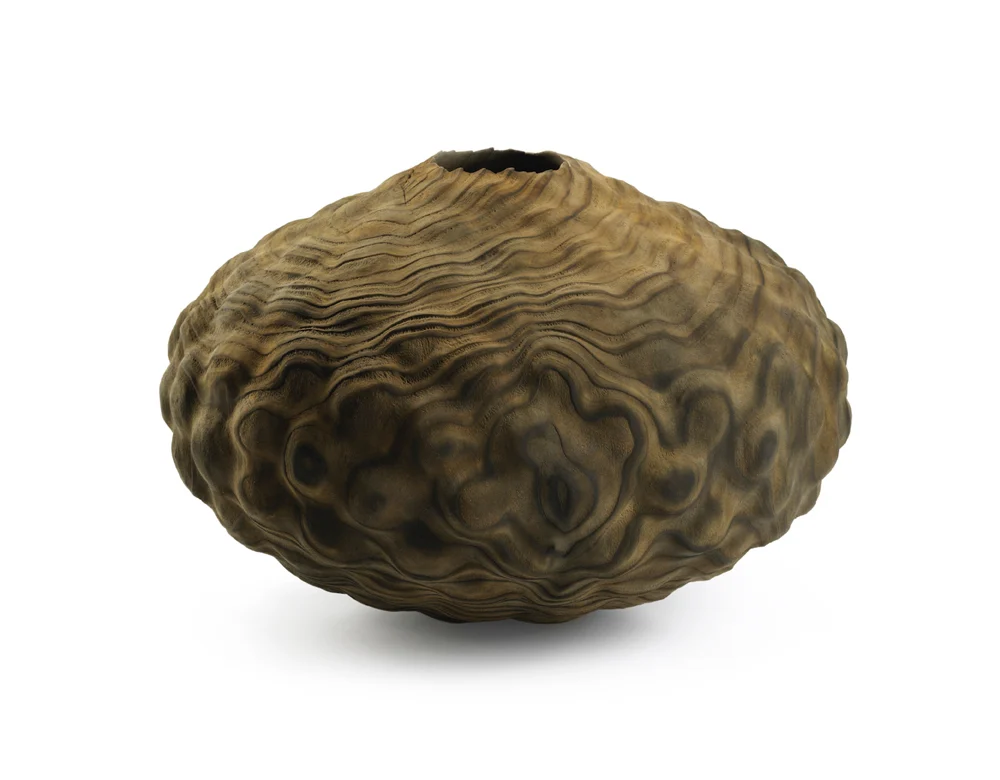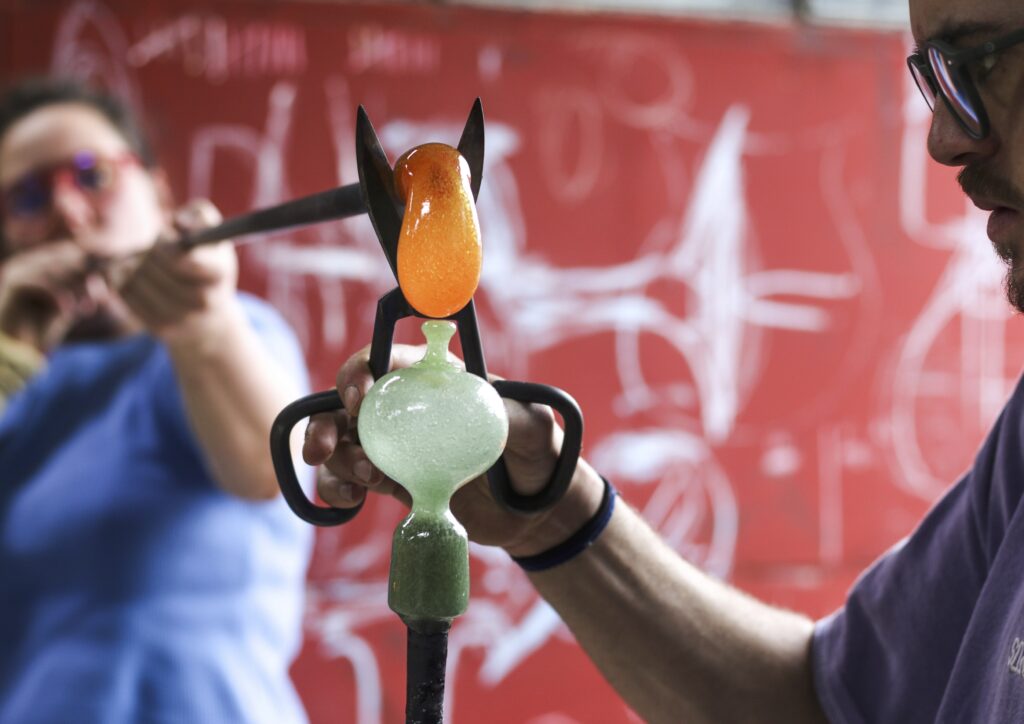In the lead-up to the UN climate change conference, COP26, Cockpit’s investigative report provides a snapshot of actions that makers based at Cockpit are taking in response to the climate emergency.
“How can craft shape a more sustainable future?
That is the starting point for a generation of makers who, disillusioned by making yet more stuff for late capitalism’s linear habit of take-make-waste, are designing for a circular economy.
In the face of climate crisis it can be easy to despair. As sea levels rise, weather systems grow chaotic, energy bills soar, and species disappear – and as carbon reduction targets are missed yet again – it is hard for small craft businesses to see how they could make any kind of difference.
Yet despair is the one thing we must avoid. And, far from being powerless, craft offers hope.
Craft puts us back in touch with the fact that we are part of the natural world, not apart from it. Makers’ studios have become labs for new forms of production, using low-carbon processes working with materials derived from waste. And craft proposes a different, more human-scale way of doing business.”
Poignant opening words to our ‘Climate change action at Cockpit‘ report from CEO, Annie Warburton.
In July 2021, we surveyed Cockpit makers to understand their attitudes and views on climate change and the impact it may have on small craft businesses, as well as the steps they are taking to reduce the carbon footprint of their businesses. This survey was completed by 40% of makers based at Cockpit at the time. We followed up with a focus group to discuss the issues in more depth and put together a collection of short case studies to illustrate the major themes:
– Conscious and sustainable consumption of resources
– Minimising energy use and being energy efficient
– Reducing waste and extending the lifetime of goods
– Thinking about your travel choices and your product miles
– Using your voice and purchasing power to drive systemic change
Fadhel Mourali, artist and hand weaver:
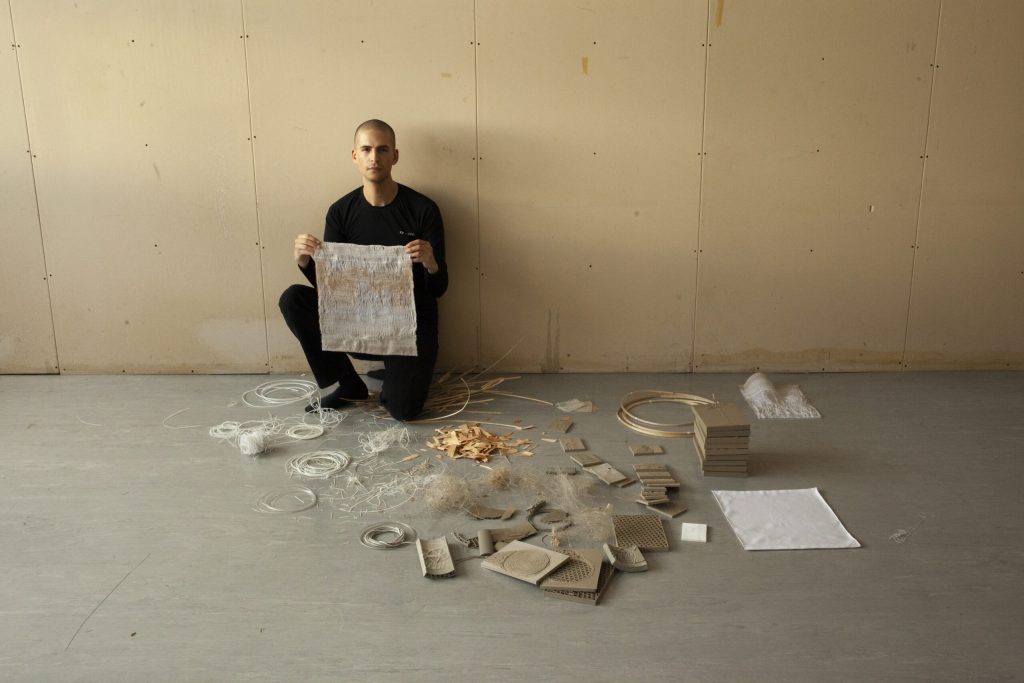 “I strive to understand the complexities of sustainability in my practice, and how the climate crisis is connected to social and financial sustainability. I regard my role as designer to be a mediator between these various complexities and place my practice in the middle of it.”
“I strive to understand the complexities of sustainability in my practice, and how the climate crisis is connected to social and financial sustainability. I regard my role as designer to be a mediator between these various complexities and place my practice in the middle of it.”
Kerry Hastings, ceramic artist:
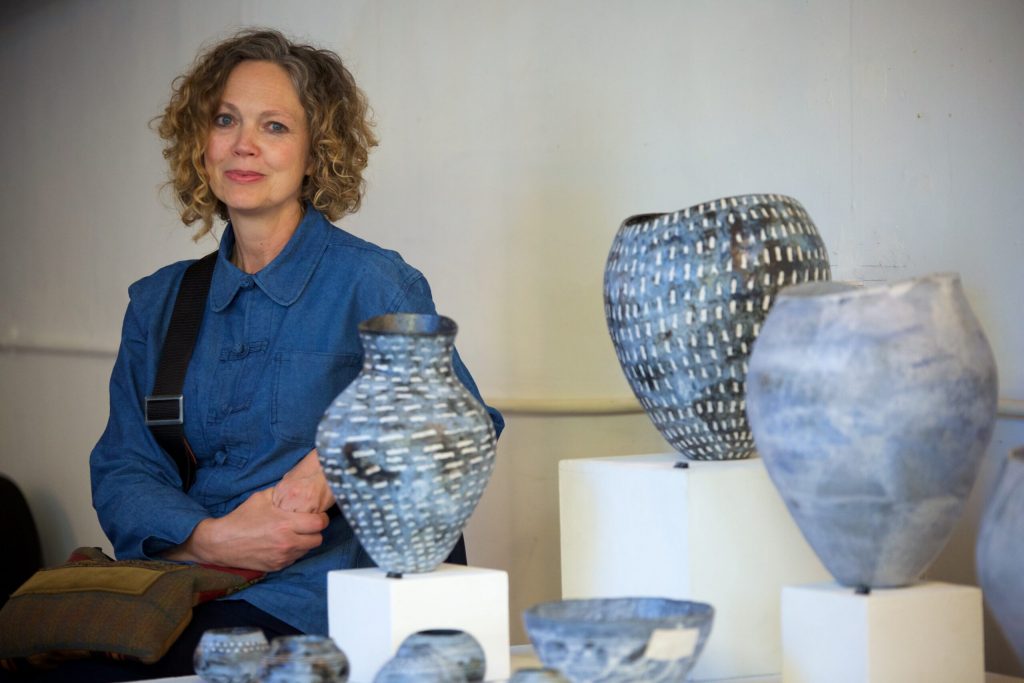 “Even though the impact of an individual maker is minimal to that of industry, there is value in attempting to be self-reliant and resourceful wherever possible when working towards environmental sustainability in one’s practice.”
“Even though the impact of an individual maker is minimal to that of industry, there is value in attempting to be self-reliant and resourceful wherever possible when working towards environmental sustainability in one’s practice.”
Ian Scott Kettle, fashion accessories designer:
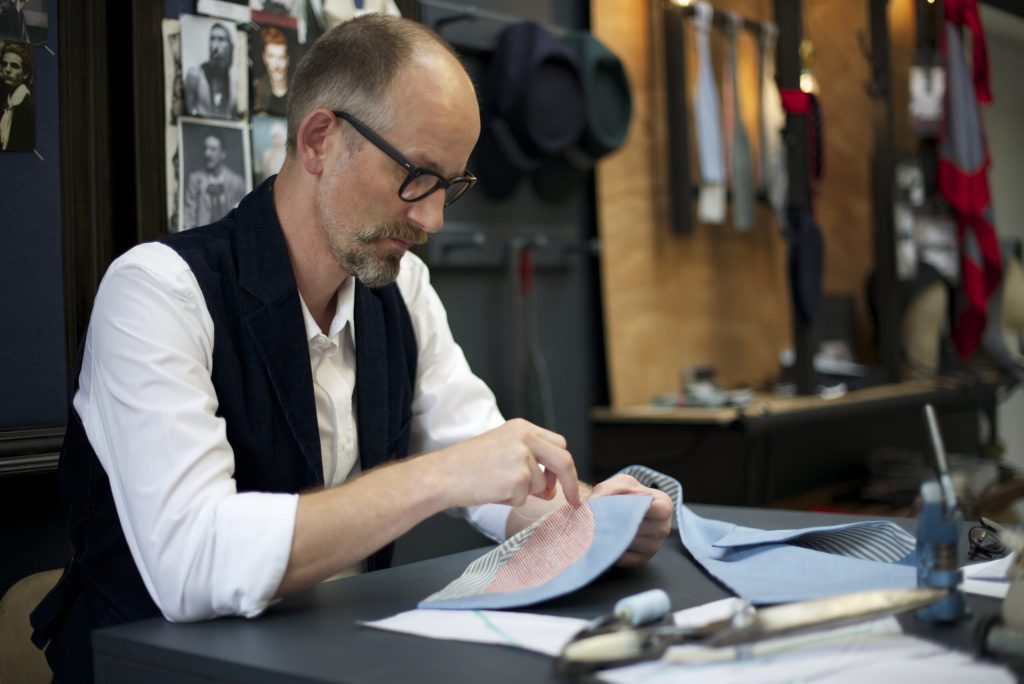 “In fashion there is a massive issue with green washing, people talking a big game and doing very little. That said, there is great work being done by some, and independent craft brands really are the future of aspirational, luxury retail. They are the antidote for the big brands of today.”
“In fashion there is a massive issue with green washing, people talking a big game and doing very little. That said, there is great work being done by some, and independent craft brands really are the future of aspirational, luxury retail. They are the antidote for the big brands of today.”
Jennie Adamson, bespoke tailor:
“In some ways it is easier for small craft practices to make positive changes, because we are small and have more control over how we work and where our materials come from. It’s important for makers to share with each other their resources and their ideas for making a difference with regards to reducing waste and impact on the environment.”
Cockpit makers are aware of climate change and the impacts that it will have on our environment and society, as well as on their own businesses. They recognise that individuals and small businesses can make a positive contribution and are taking action on climate change. Many makers are consciously and sustainably consuming materials and energy, as well as reducing waste and exploring new models of production. Others are using their practices to communicate issues and drive change.
This is just the beginning. There is much more to be done as we all take responsibility, individually and collectively, to play our part. Craft, as Cockpit’s makers show, can be a powerful part of the solution.
This project was initiated by Cockpit Trustee Sarah Samuel. The research was carried out by Emma Sims, Programme Coordinator at Cockpit and Grace Compton, Sustainability Consultant at PA Consulting who have also authored this report.
